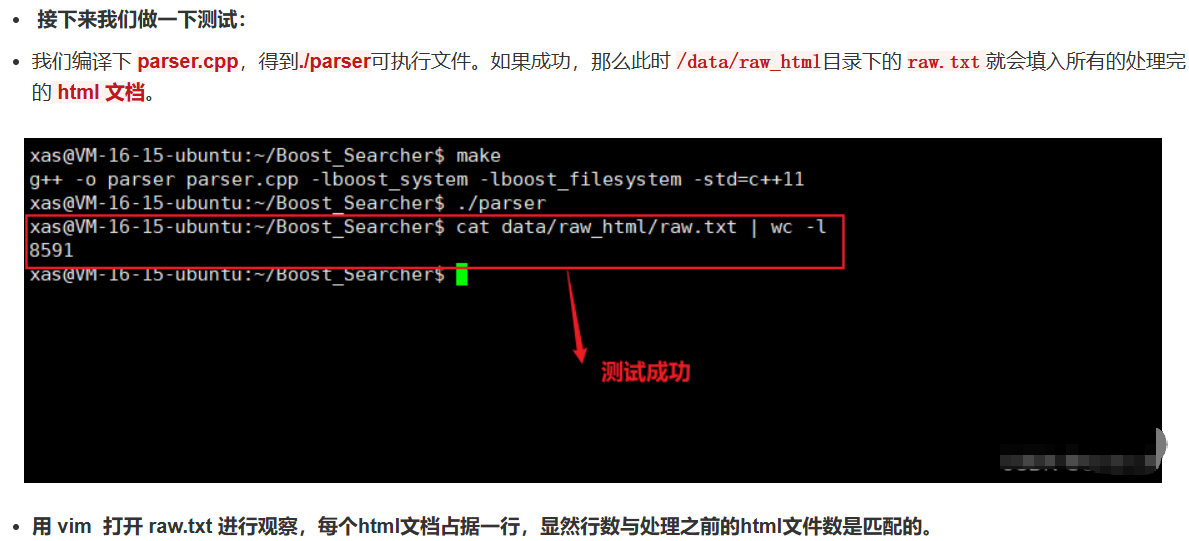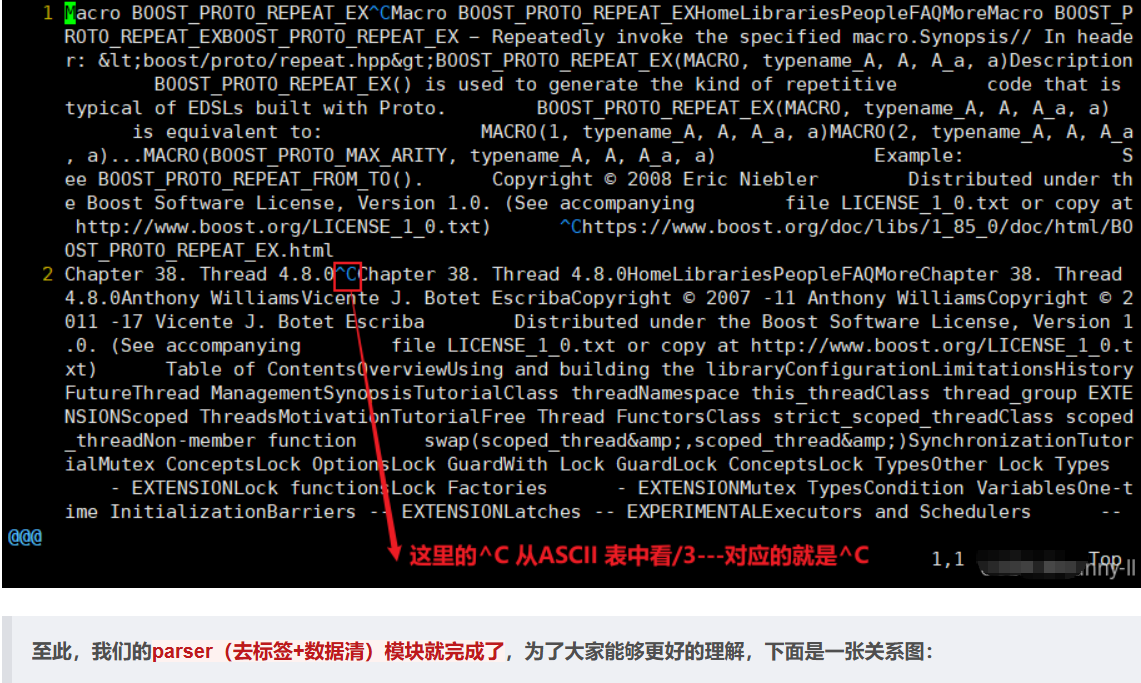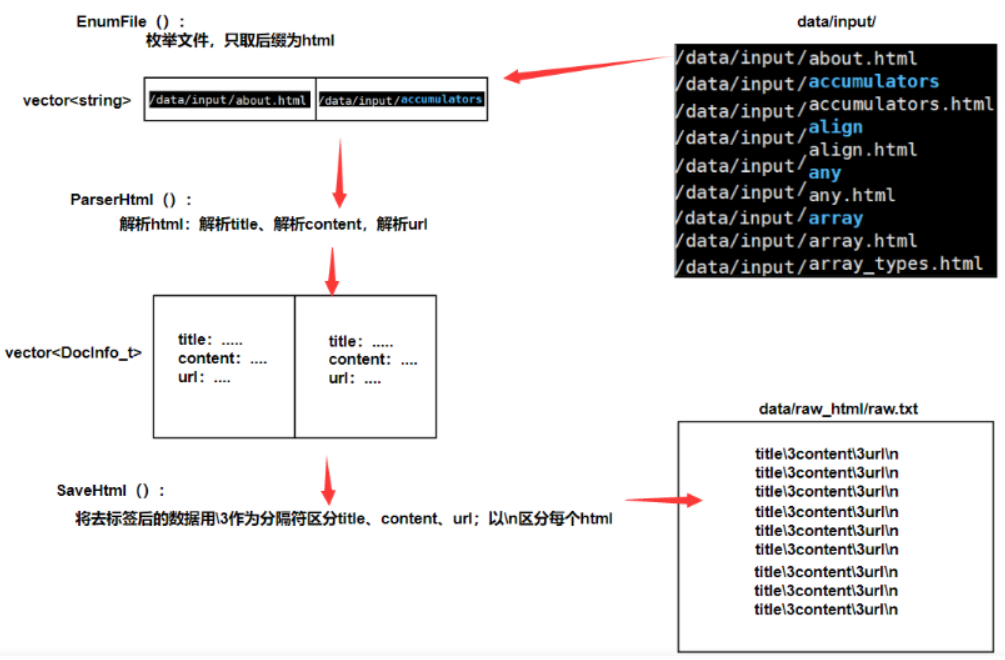C++基于正倒排索引的Boost搜索引擎
文章目录
- C++基于正倒排索引的Boost搜索引擎
- 一、项目的相关背景
- 二、搜索引擎地相关宏观原理
- 三、搜索引擎技术栈和项目环境
- [四、正排索引 vs 倒排索引 - 搜索引擎具体原理](#四、正排索引 vs 倒排索引 - 搜索引擎具体原理)
- 五、编写数据去标签与数据清洗的模块Parser
-
- [5.1 先将boost库解压到Linux下](#5.1 先将boost库解压到Linux下)
- [5.2 在Linux下面创建目录](#5.2 在Linux下面创建目录)
- [5.3 编写parse模块](#5.3 编写parse模块)
- [六、编写建立索引的模块 Index](#六、编写建立索引的模块 Index)
- [七、编写搜索引擎模块 Searcher](#七、编写搜索引擎模块 Searcher)
- [八、编写 http_server 模块](#八、编写 http_server 模块)
- 九、编写前端模块
- 总结
一、项目的相关背景

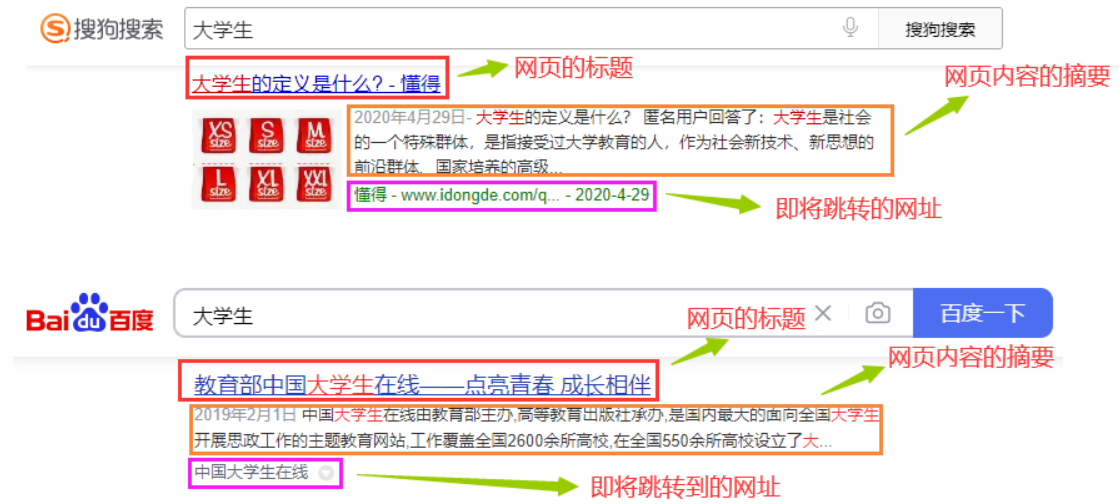
二、搜索引擎地相关宏观原理
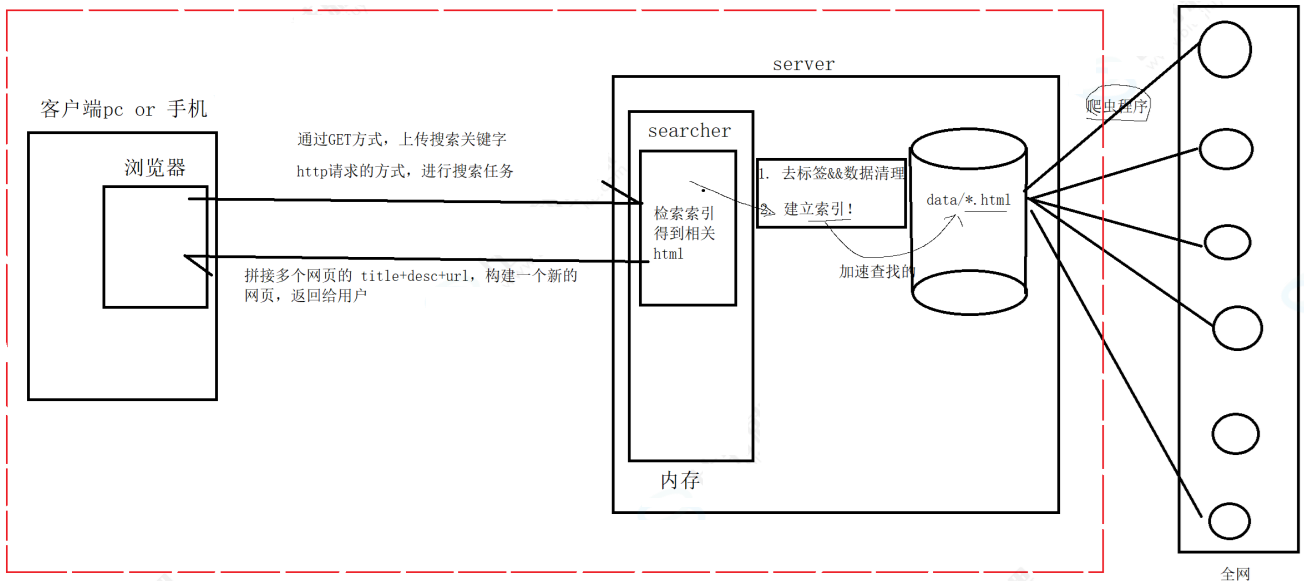
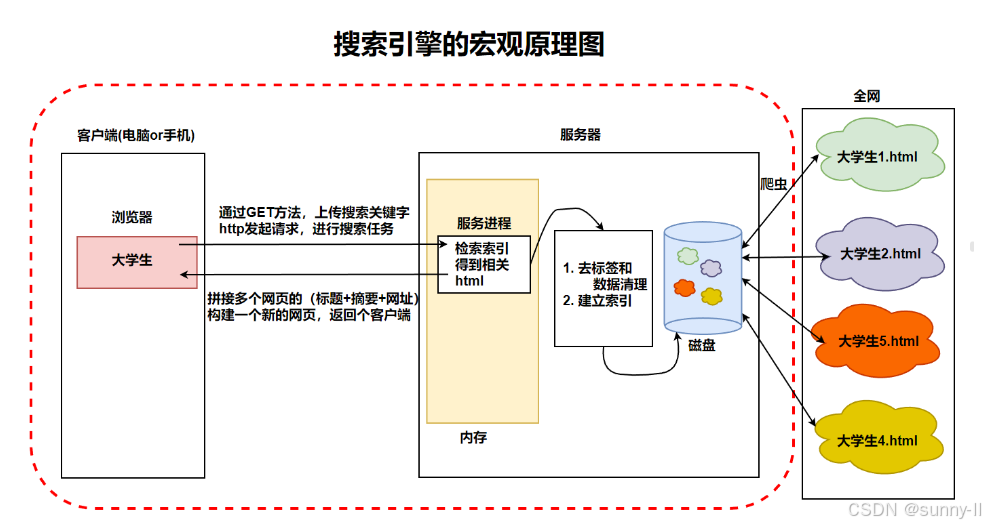
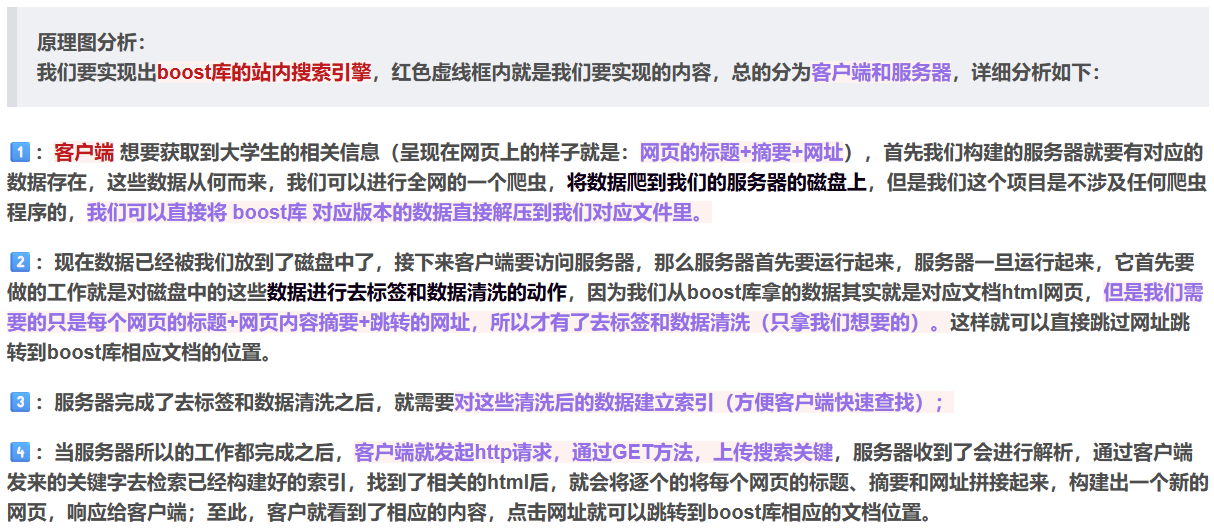
三、搜索引擎技术栈和项目环境

四、正排索引 vs 倒排索引 - 搜索引擎具体原理
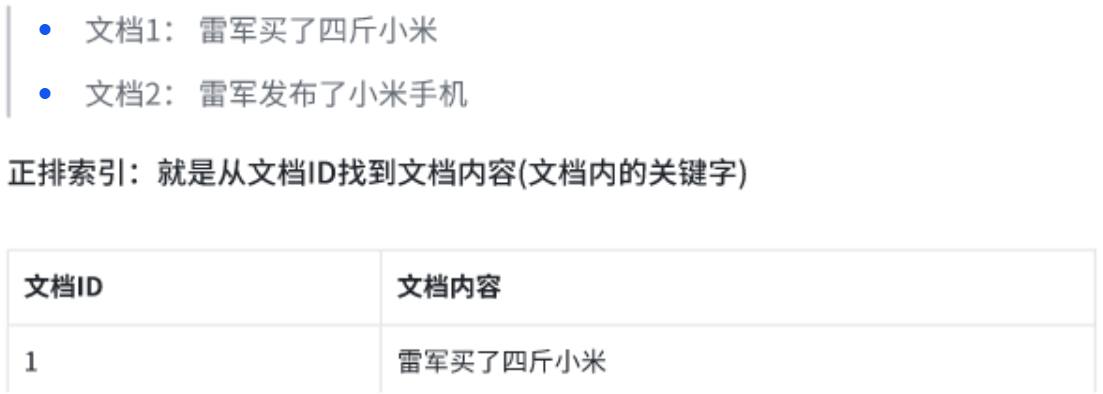

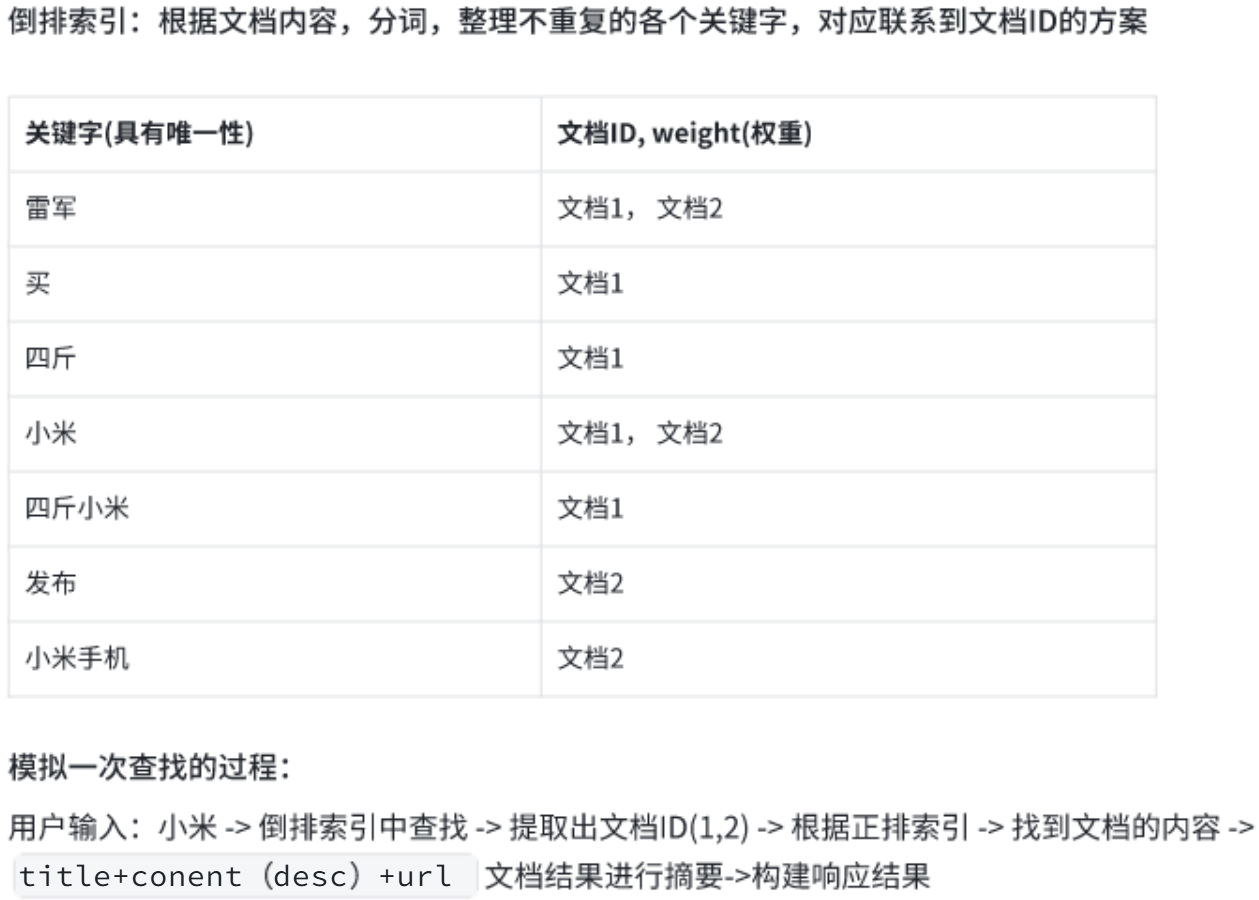

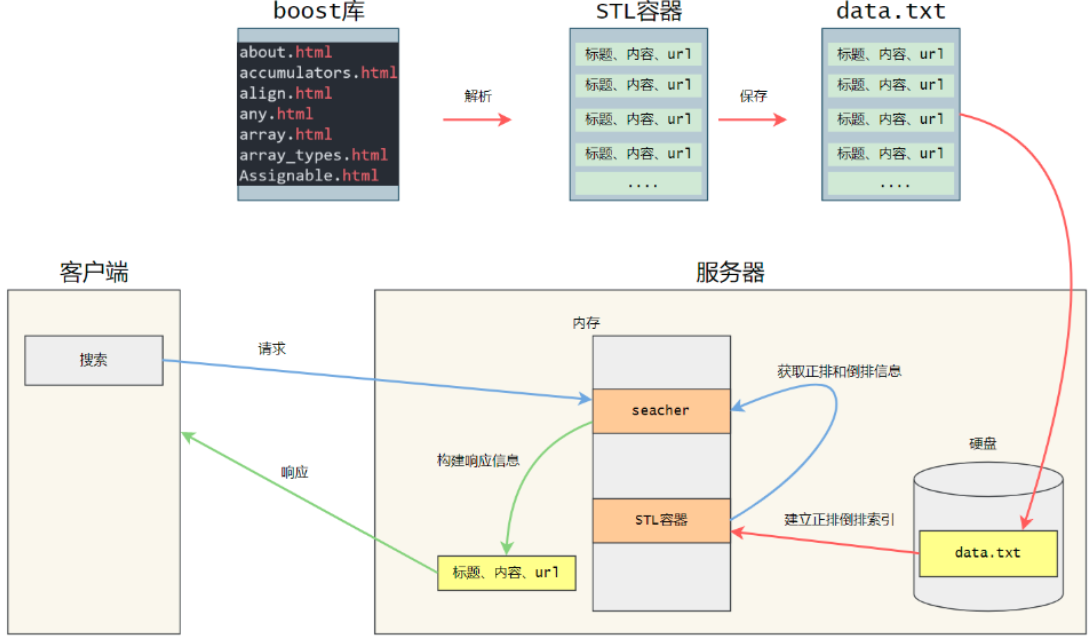
五、编写数据去标签与数据清洗的模块Parser
5.1 先将boost库解压到Linux下
⽬前只需要boost_1_78_0/doc/html⽬录下的html⽂件,
⽤它来进⾏建⽴索引
这里我没有去官网下载完整boost库,而是直接下载纯html文件!
但是这里我还是要编写程序来清理除了html相关的其他文件~

5.2 在Linux下面创建目录
Boost_Search是所有代码模块和数据存放的位置


5.3 编写parse模块


这里创建raw.txt文件,用来存储干净的数据文档
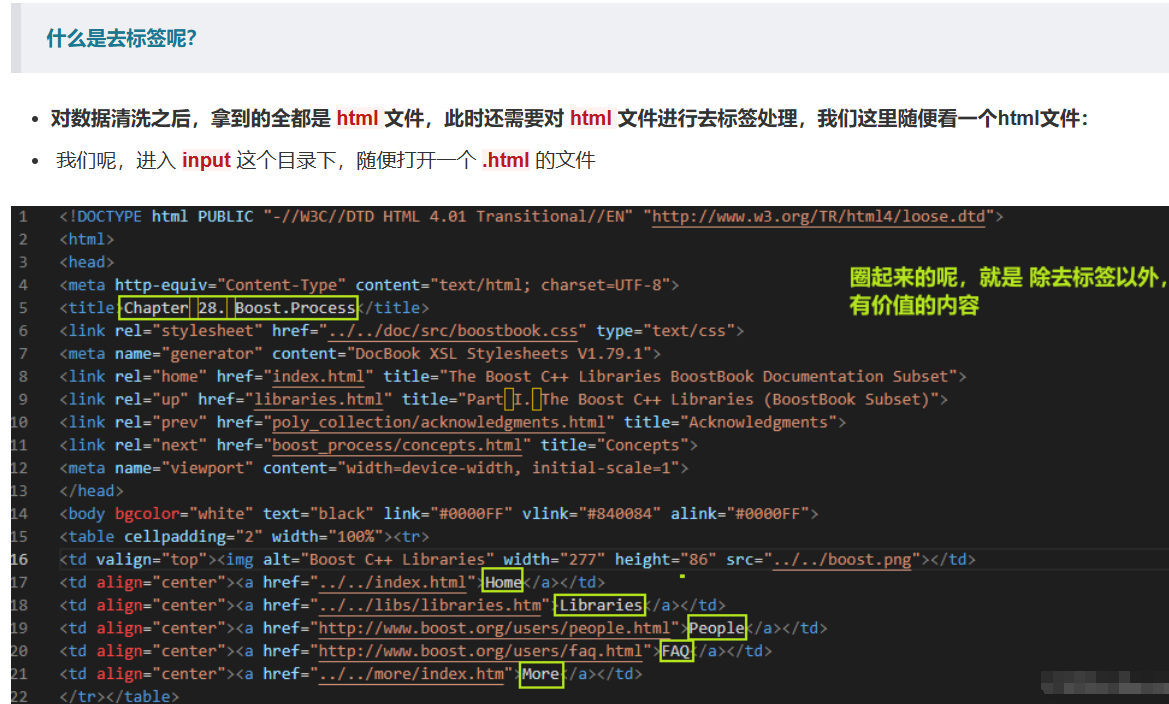
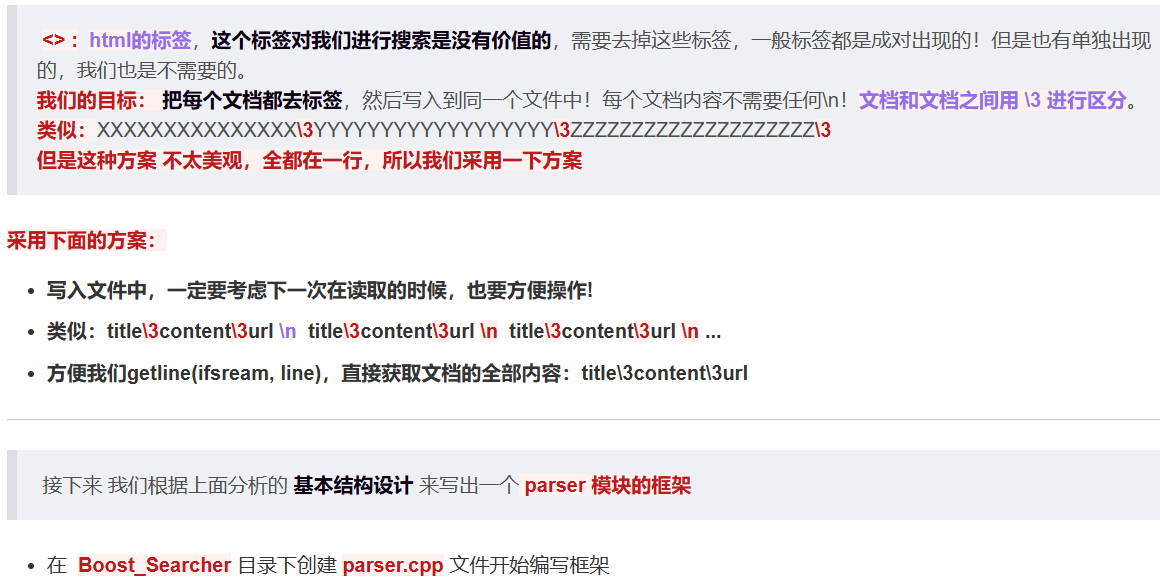
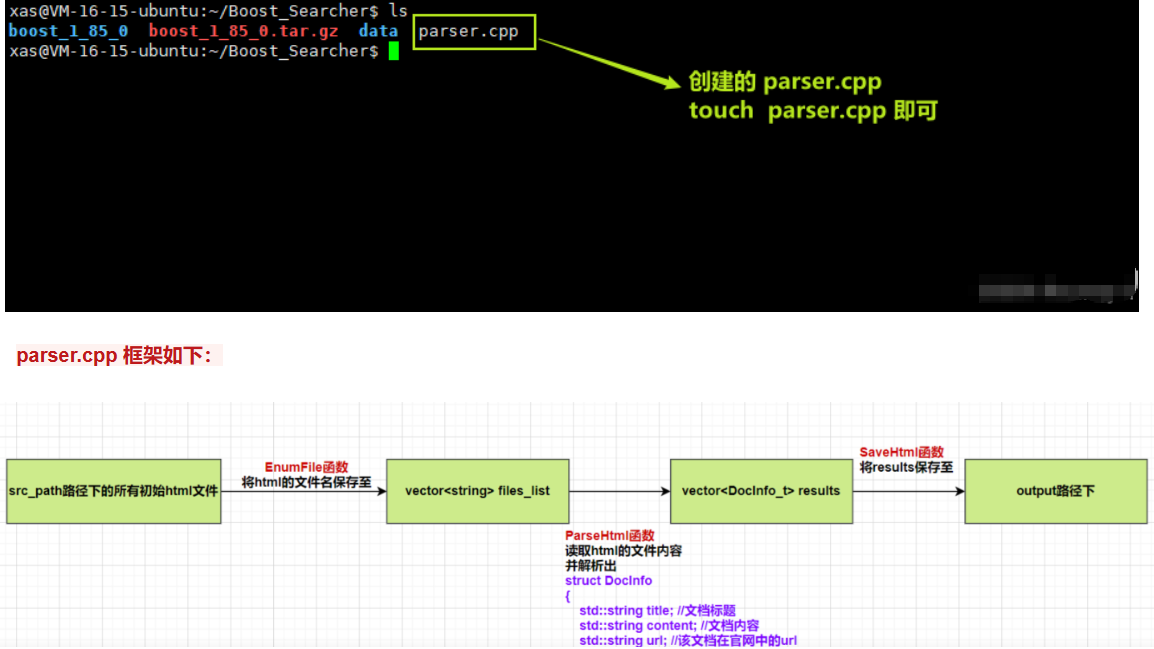
代码如下(示例):
c
#include <iostream>
#include <string>
#include <vector>
// 首先我们肯定会读取文件,所以先将文件的路径名 罗列出来
// 将 数据源的路径 和 清理后干净文档的路径 定义好
const std::string src_path = "data/input"; // 数据源的路径
const std::string output = "data/raw_html/raw.txt"; // 清理后干净文档的路径
//DocInfo --- 文件信息结构体
typedef struct DocInfo
{
std::string title; //文档的标题
std::string content; //文档的内容
std::string url; //该文档在官网当中的url
}DocInfo_t;
// 命名规则
// const & ---> 输入
// * ---> 输出
// & ---> 输入输出
//把每个html文件名带路径,保存到files_list中
bool EnumFile(const std::string &src_path, std::vector<std::string> *files_list);
//按照files_list读取每个文件的内容,并进行解析
bool ParseHtml(const std::vector<std::string> &files_list, std::vector<DocInfo_t> *results);
//把解析完毕的各个文件的内容写入到output
bool SaveHtml(const std::vector<DocInfo_t> &results, const std::string &output);
int main()
{
std::vector<std::string> files_list; // 将所有的 html文件名保存在 files_list 中
// 第一步:递归式的把每个html文件名带路径,保存到files_list中,方便后期进行一个一个的文件读取
// 从 src_path 这个路径中提取 html文件,将提取出来的文件存放在 string 类型的 files_list 中
if(!EnumFile(src_path, &files_list)) //EnumFile--枚举文件
{
std::cerr << "enum file name error! " << std::endl;
return 1;
}
return 0;
// 第二步:从 files_list 文件中读取每个.html的内容,并进行解析
std::vector<DocInfo_t> results;
// 从 file_list 中进行解析,将解析出来的内容存放在 DocInfo 类型的 results 中
if(!ParseHtml(files_list, &results))//ParseHtml--解析html
{
std::cerr << "parse html error! " << std::endl;
return 2;
}
// 第三部:把解析完毕的各个文件的内容写入到output,按照 \3 作为每个文档的分隔符
// 将 results 解析好的内容,直接放入 output 路径下
if(!SaveHtml(results, output))//SaveHtml--保存html
{
std::cerr << "save html error! " << std::endl;
return 3;
}
return 0;
}命令: sudo apt install -y libboost-all-dev
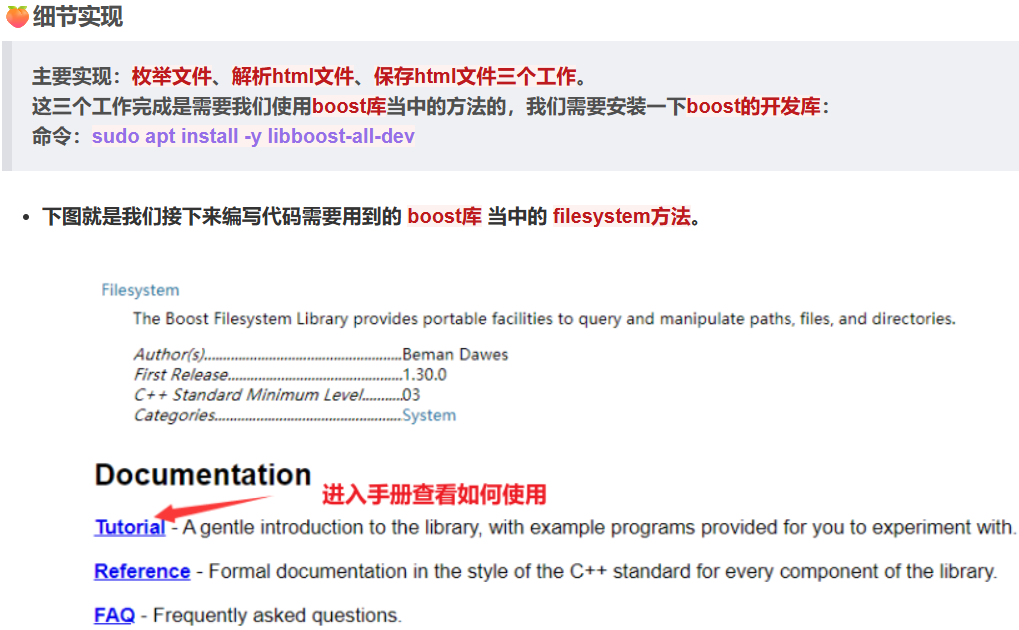
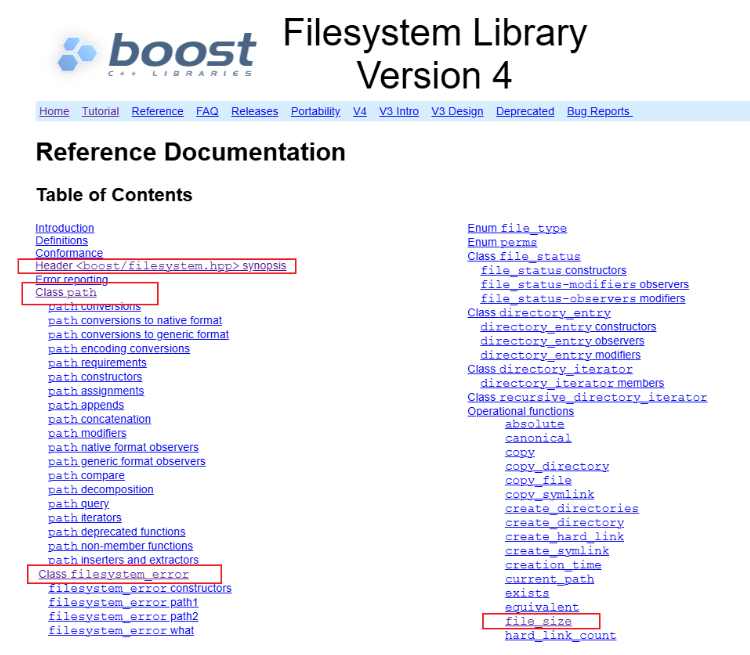
枚举文件(示例):
c
//在原有的基础上添加这个头文件
#include <boost/filesystem.hpp>
//把每个html文件名带路径,保存到files_list中
bool EnumFile(const std::string &src_path, std::vector<std::string> *files_list)
{
// 简化作用域的书写
namespace fs = boost::filesystem;
fs::path root_path(src_path); // 定义一个path对象,枚举文件就从这个路径下开始
// 判断路径是否存在
if(!fs::exists(root_path))
{
std::cerr << src_path << " not exists" << std::endl;
return false;
}
// 对文件进行递归遍历
fs::recursive_directory_iterator end; // 定义了一个空的迭代器,用来进行判断递归结束 -- 相当于 NULL
for(fs::recursive_directory_iterator iter(root_path); iter != end; iter++)
{
// 判断指定路径是不是常规文件,如果指定路径是目录或图片直接跳过
if(!fs::is_regular_file(*iter))
{
continue;
}
// 如果满足了是普通文件,还需满足是.html结尾的
// 如果不满足也是需要跳过的
// ---通过iter这个迭代器(理解为指针)的一个path方法(提取出这个路径)
// ---然后通过extension()函数获取到路径的后缀
if(iter->path().extension() != ".html")
{
continue;
}
//std::cout << "debug: " << iter->path().string() << std::endl; // 测试代码
// 走到这里一定是一个合法的路径,以.html结尾的普通网页文件
files_list->push_back(iter->path().string()); // 将所有带路径的html保存在files_list中,方便后续进行文本分析
}
return true;
}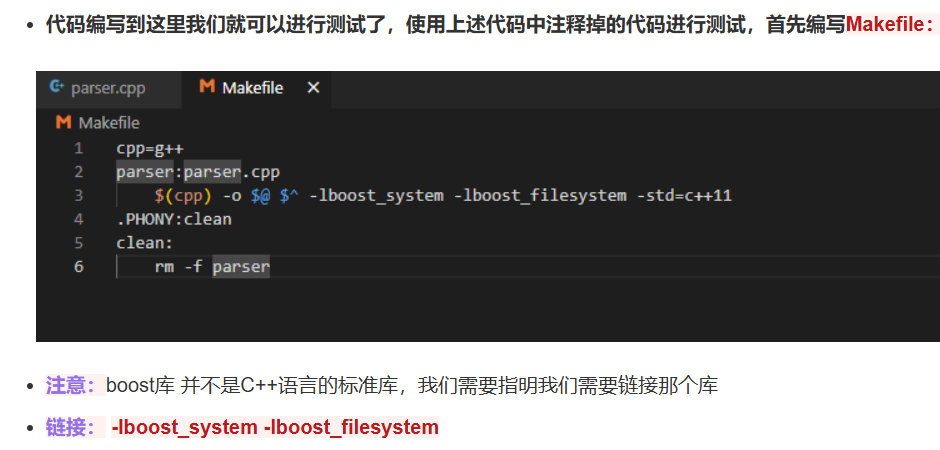
makefile代码如下(示例):
c
cpp=g++
parser:parser.cpp
$(cpp) -o $@ $^ -lboost_system -lboost_filesystem -std=c++11
.PHONY:clean
clean:
rm -f parser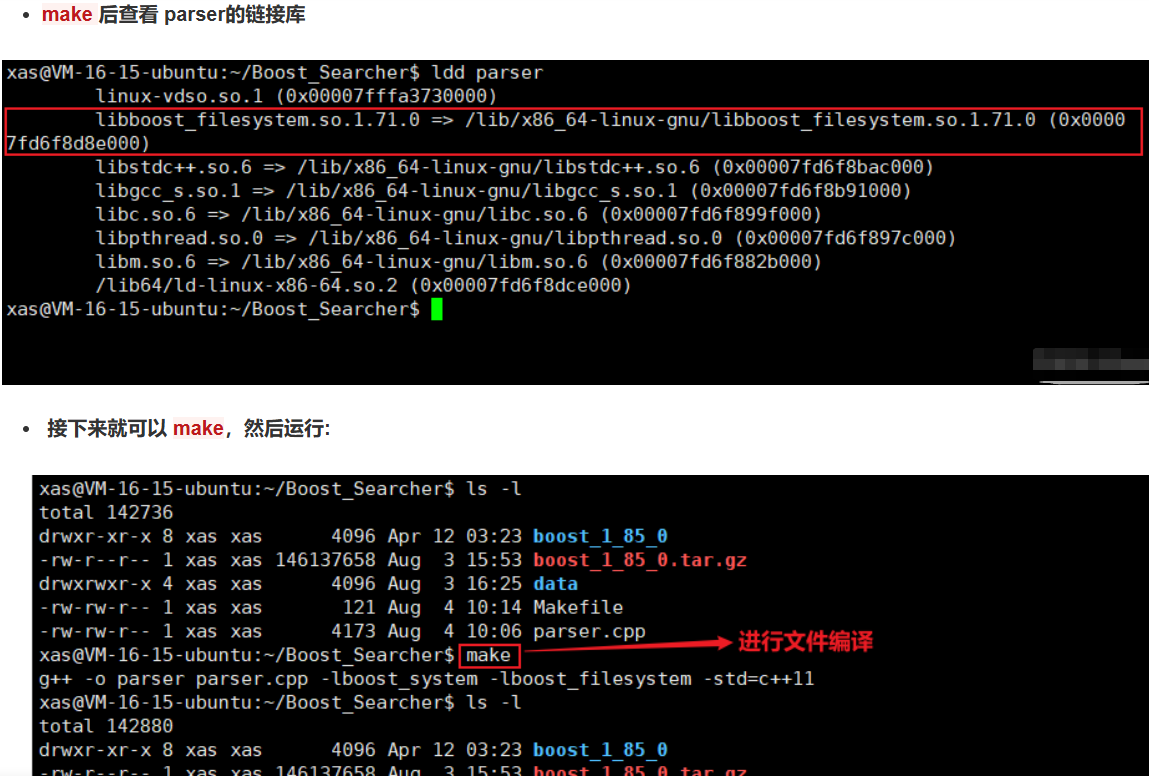
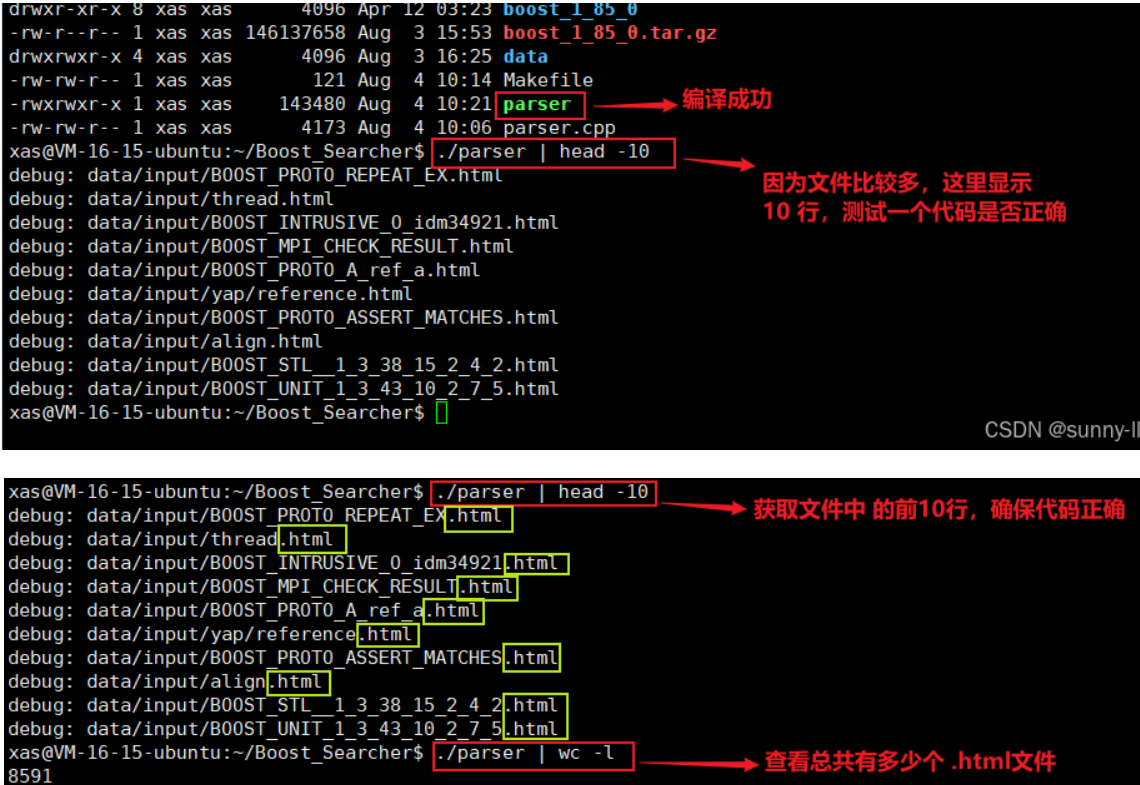
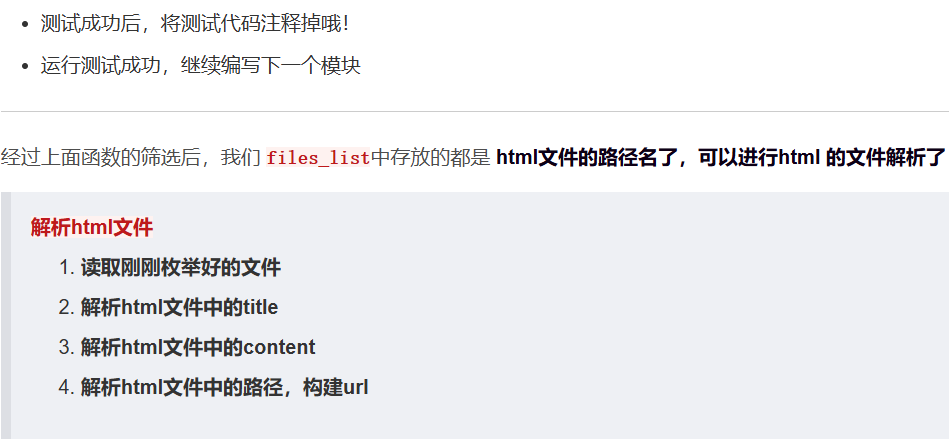
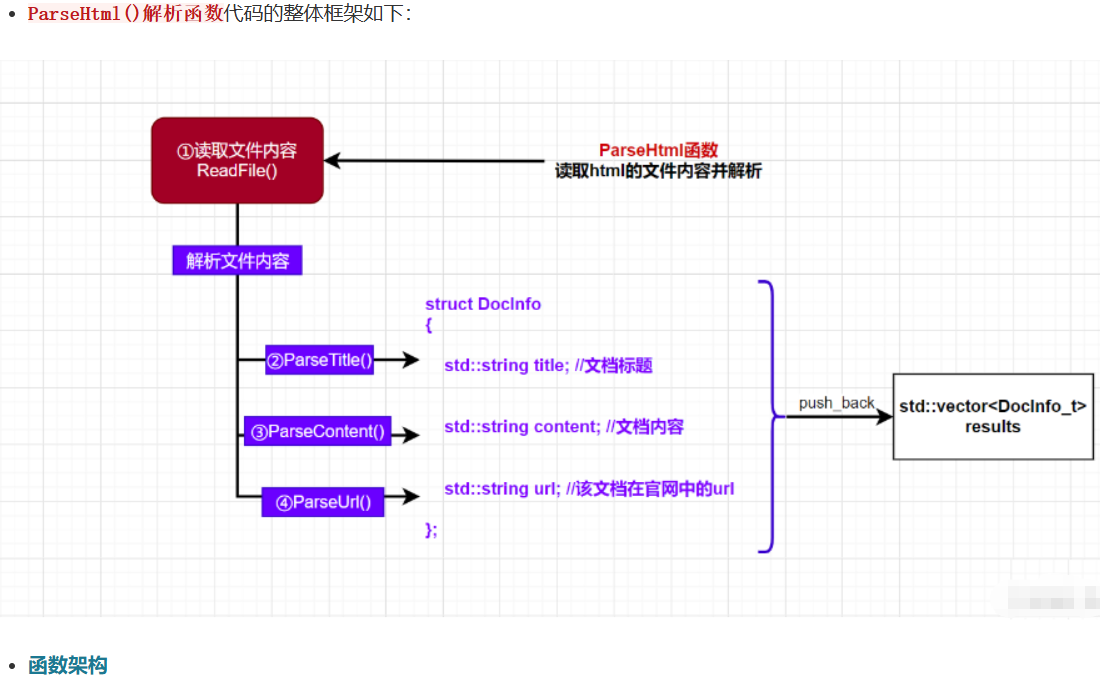
代码如下(示例):
c
bool ParseHtml(const std::vector<std::string> &files_list, std::vector<DocInfo_t> *results)
{
for(const std::string &file : files_list)
{
// 1.读取文件,Read()
std::string result;
if(!ns_util::FileUtil::ReadFile(file, &result))
{
continue;
}
// 2.解析指定的文件,提取title
DocInfo_t doc;
if(!ParseTitle(result, &doc.title))
{
continue;
}
// 3.解析指定的文件,提取content
if(!ParseContent(result, &doc.content))
{
continue;
}
// 4.解析指定的文件路径,构建url
if(!ParseUrl(file, &doc.url))
{
continue;
}
// 到这里,一定是完成了解析任务,当前文档的相关结果都保存在了doc里面
results->push_back(std::move(doc)); // 本质会发生拷贝,效率肯能会比较低,这里我们使用move后的左值变成了右值,去调用push_back的右值引用版本
}
return true;
}
代码如下(示例):
c
#pragma once
#include <iostream>
#include <string>
#include <fstream>
#include <vector>
namespace ns_util
{
class FileUtil
{
public:
//输入文件名,将文件内容读取到out中
static bool ReadFile(const std::string &file_path, std::string *out)
{
// 读取 file_path(一个.html文件) 中的内容 -- 打开文件
std::ifstream in(file_path, std::ios::in);
//文件打开失败检查
if(!in.is_open())
{
std::cerr << "open file " << file_path << " error" << std::endl;
return false;
}
//读取文件内容
std::string line;
//while(bool),getline的返回值istream会重载操作符bool,读到文件尾eofset被设置并返回false
//如何理解getline读取到文件结束呢??getline的返回值是一个&,while(bool), 本质是因为重载了强制类型转化
while(std::getline(in, line)) // 每循环一次,读取的是文件的一行内容
{
*out += line; // 将文件内容保存在 *out 里面
}
in.close(); // 关掉文件
return true;
}
};
}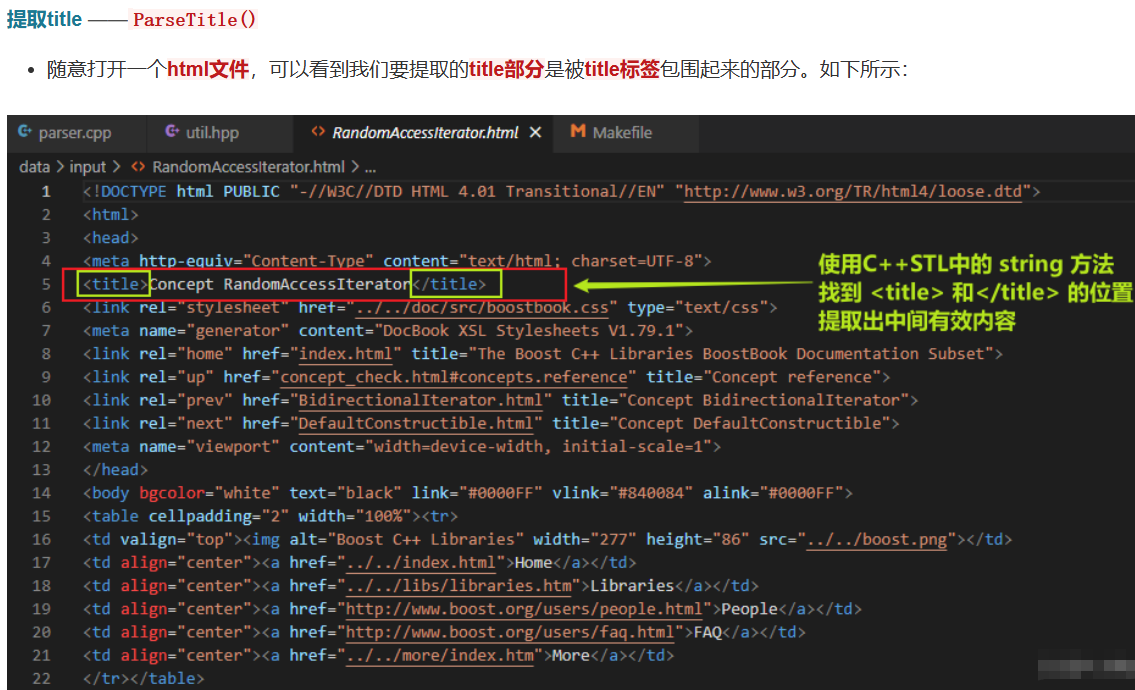
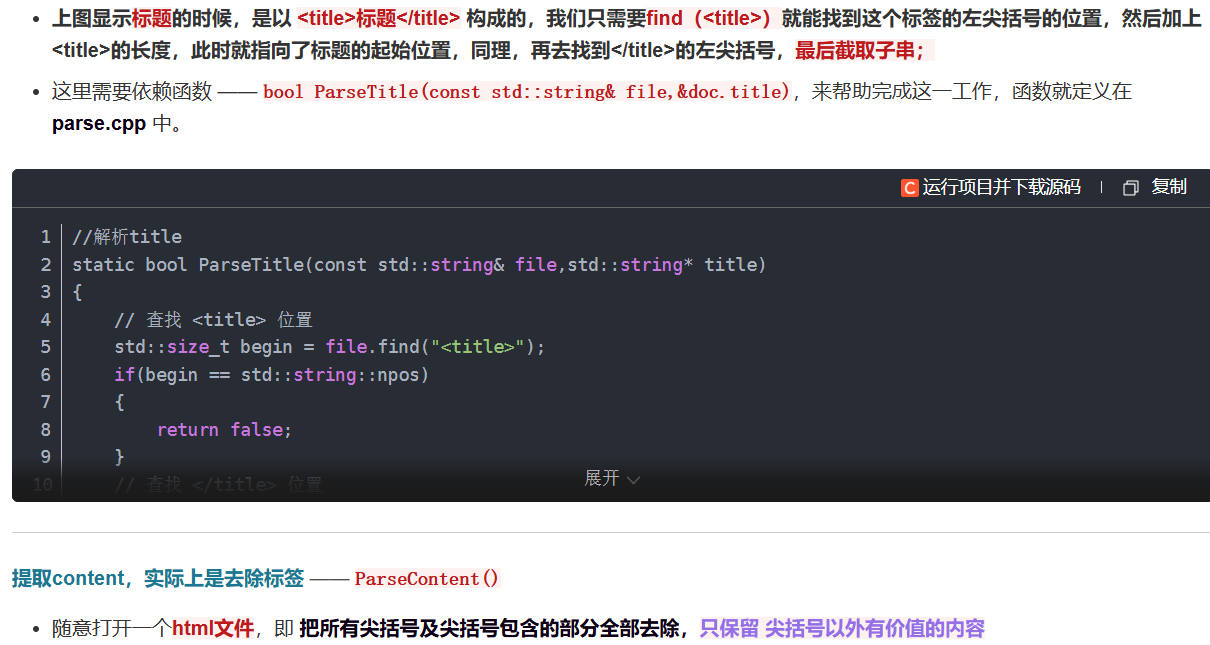
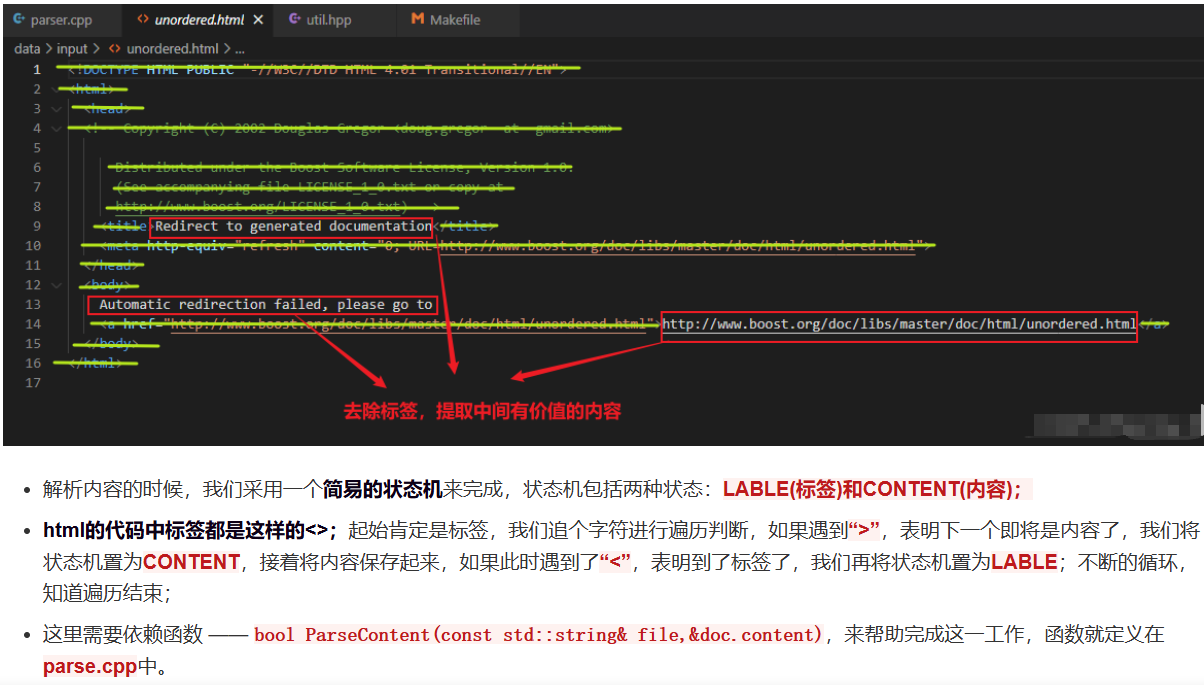
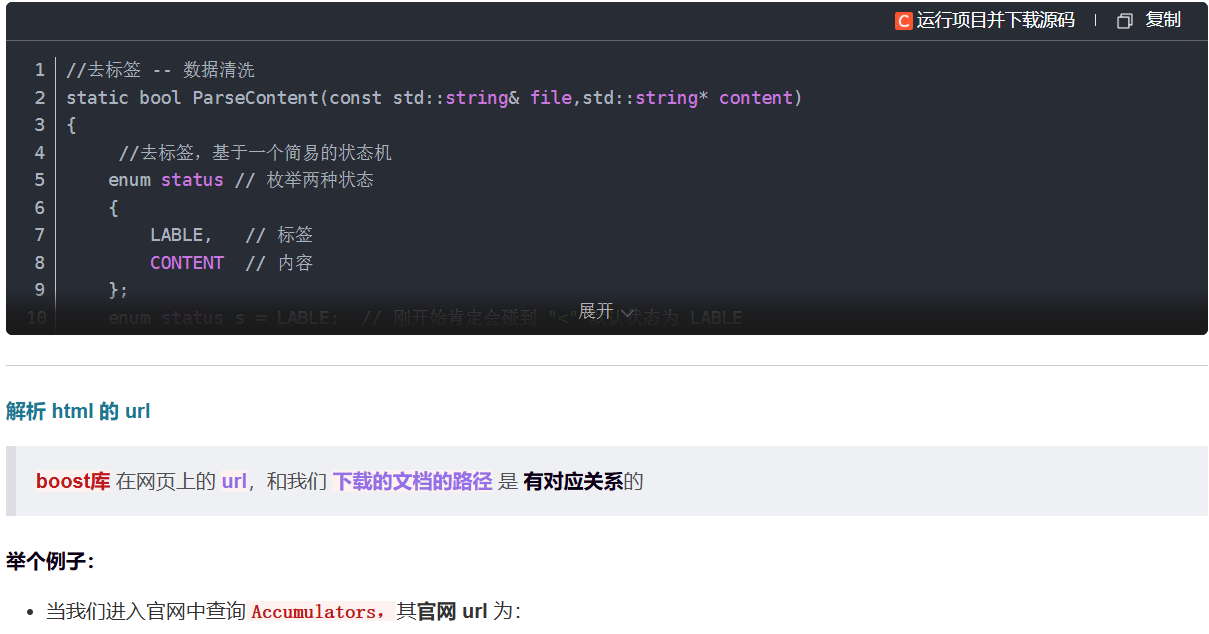
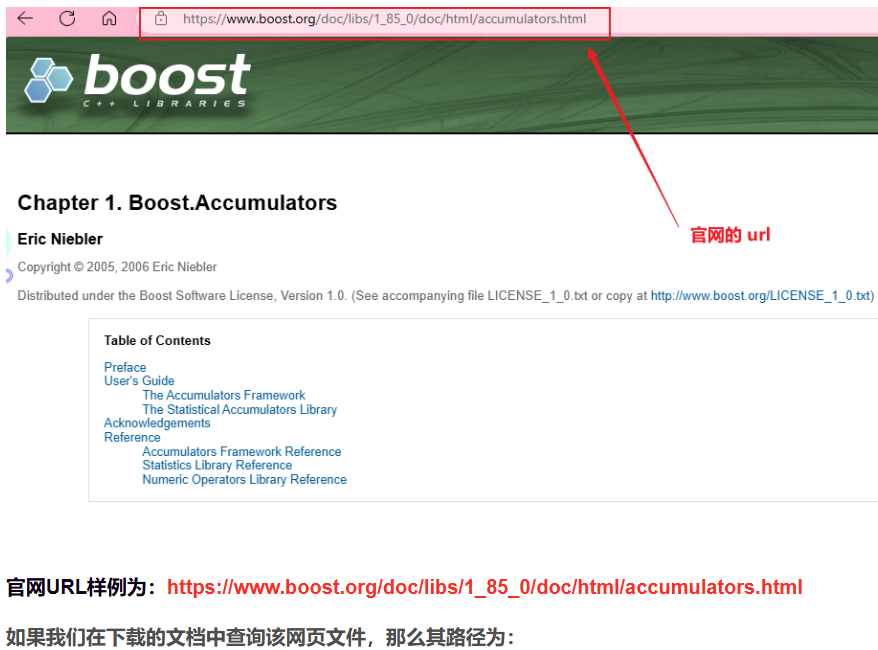
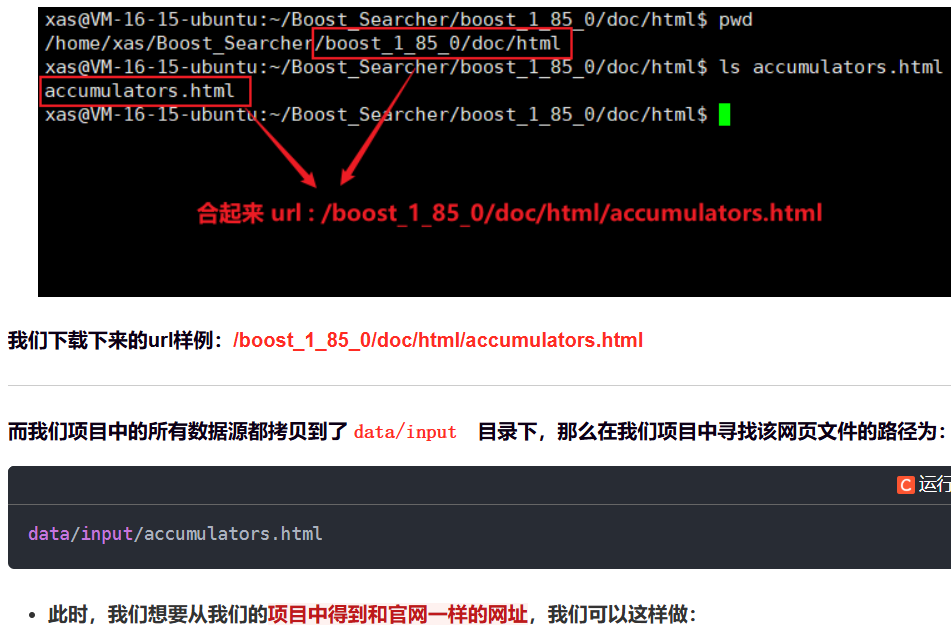
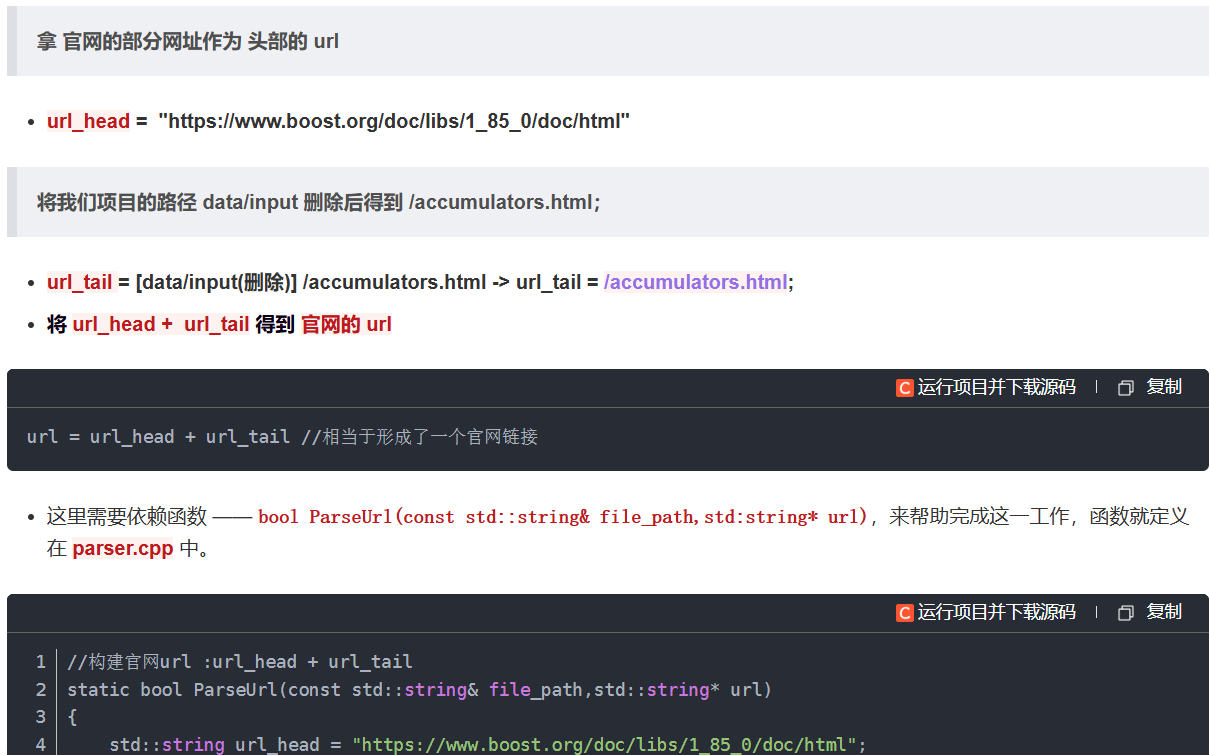
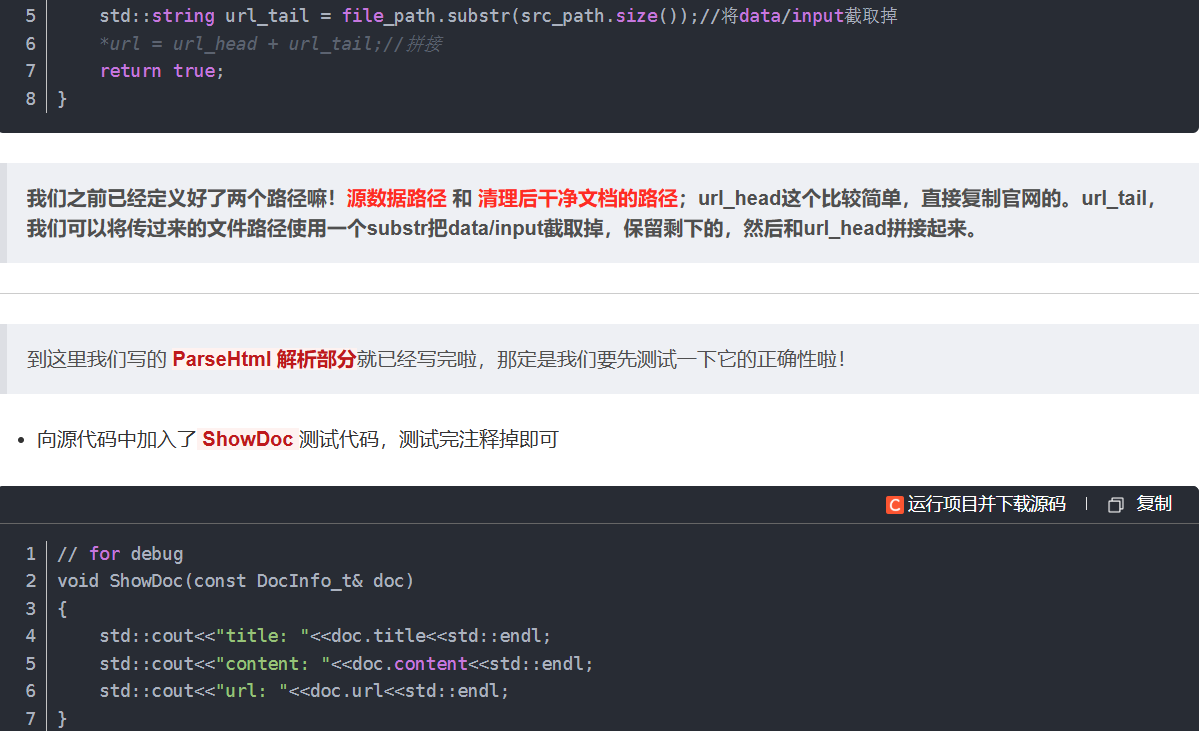
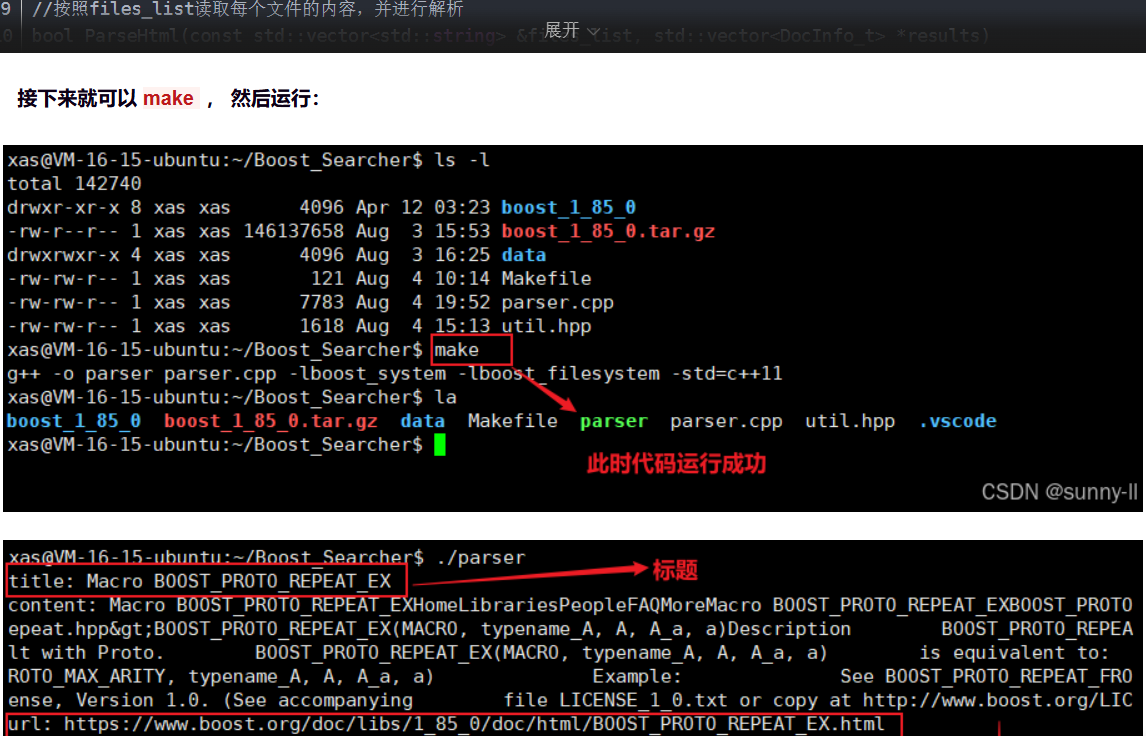
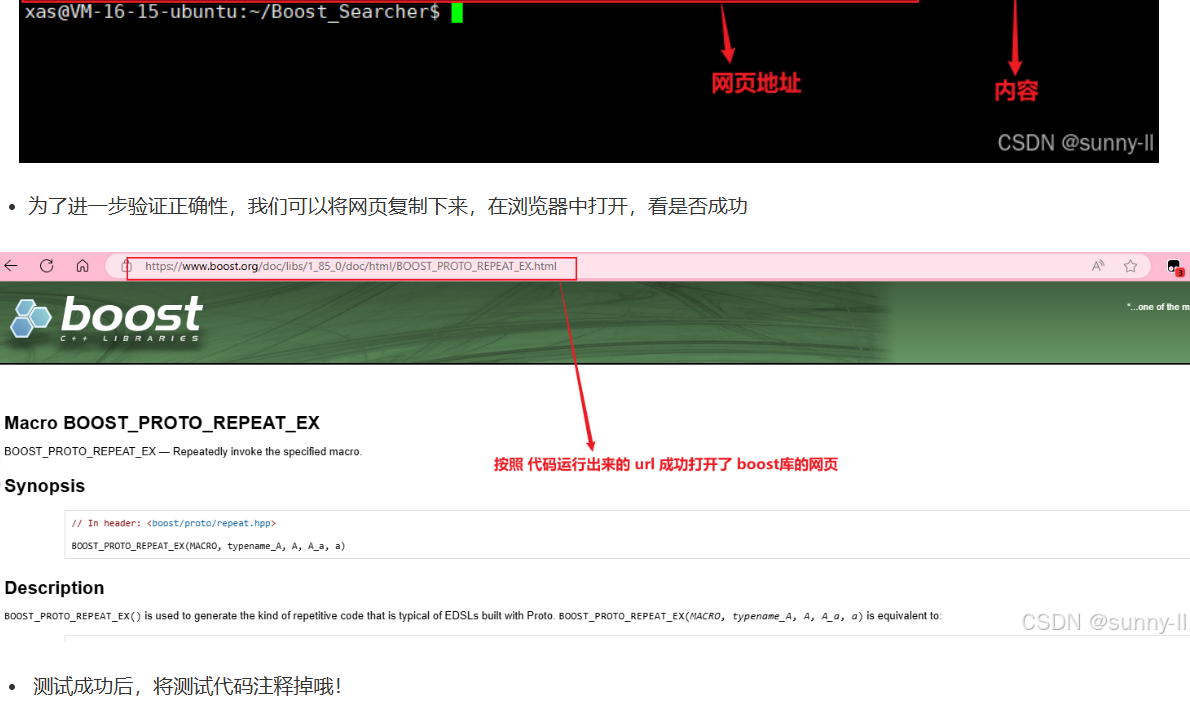

代码如下(示例):
c
bool SaveHtml(const std::vector<DocInfo_t> &results, const std::string &output)
{
#define SEP '\3'//分割符---区分标题、内容和网址
// 打开文件,在里面进行写入
// 按照二进制的方式进行写入 -- 你写的是什么文档就保存什么
std::ofstream out(output, std::ios::out | std::ios::binary);
if(!out.is_open())
{
std::cerr << "open " << output << " failed!" << std::endl;
return false;
}
// 到这里就可以进行文件内容的写入了
for(auto &item : results)
{
std::string out_string;
out_string = item.title;//标题
out_string += SEP;//分割符
out_string += item.content;//内容
out_string += SEP;//分割符
out_string += item.url;//网址
out_string += '\n';//换行,表示区分每一个文件
// 将字符串内容写入文件中
out.write(out_string.c_str(), out_string.size());
}
out.close();
return true;
}